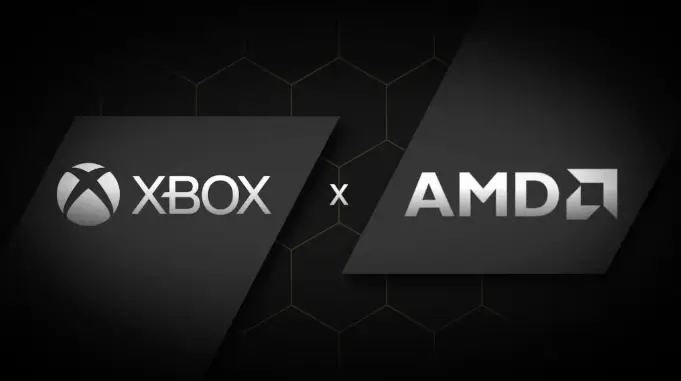Microsoft and AMD: Crafting the Next-Gen Xbox Ecosystem Together
The collaboration between Microsoft and AMD has always been a focal point in the gaming hardware sector. Recently, Sarah Bond, President of Microsoft's Xbox division, announced that Microsoft and AMD have reached a "multi-year strategic partnership." The two companies will jointly develop chipsets for a variety of devices, including the next-generation Xbox console and handheld devices, as well as create a new generation of Xbox cloud gaming services. This partnership signifies a significant step in Microsoft's strategic layout in the gaming hardware field and heralds the comprehensive integration of the Xbox ecosystem across multiple platforms.
I. Development Plans for the Next-Generation Xbox Hardware
 The collaboration between Microsoft and AMD will focus on developing chipsets based on the Zen 6 architecture and RDNA 5 graphics cards. These chipsets will support hardware-level ray tracing, AI acceleration, and cross-device compatibility. The new hardware will continue the Xbox commitment of "games never going out of date," supporting the native operation of previous-generation games through hardware-level compatibility mechanisms and optimizing loading speeds and visual quality. Additionally, the next-generation Xbox console may adopt an architecture similar to that of a PC, which will greatly simplify the workflow for game developers and is also expected to enhance game compatibility and operational efficiency.
The collaboration between Microsoft and AMD will focus on developing chipsets based on the Zen 6 architecture and RDNA 5 graphics cards. These chipsets will support hardware-level ray tracing, AI acceleration, and cross-device compatibility. The new hardware will continue the Xbox commitment of "games never going out of date," supporting the native operation of previous-generation games through hardware-level compatibility mechanisms and optimizing loading speeds and visual quality. Additionally, the next-generation Xbox console may adopt an architecture similar to that of a PC, which will greatly simplify the workflow for game developers and is also expected to enhance game compatibility and operational efficiency.
II. Expansion of the Windows Handheld Ecosystem
The Windows handheld ecosystem is also rapidly expanding, with the Asus ROG Ally series becoming a benchmark case. This device is equipped with a deeply customized Windows 11 system. Microsoft plans to open this optimization solution to third-party vendors such as Lenovo Legion Go and AYANEO, attempting to unify the experience standard of Windows handhelds through a "certification program," forming an open hardware ecosystem similar to Android. This open strategy will bring more diversified game choices for players.
III. Xbox Cloud Gaming Services and Multi-Device Ecosystem
Microsoft is developing the next-generation Xbox Cloud Gaming server, combining Azure edge nodes and hybrid rendering technology. In the future, Windows handhelds will support "seamless switching between local rendering and cloud gaming," automatically invoking local computing power when there are network fluctuations to ensure uninterrupted gaming experiences. This model will significantly reduce the handheld's dependence on local hardware performance, attracting more casual gamers. Since its launch at the end of 2020, Microsoft's Xbox Cloud Gaming has been steadily expanding its coverage and functionality. With the deepening of the collaboration with AMD, future Xbox cloud gaming is expected to achieve higher visual quality and smoother operation.
At the same time, Microsoft emphasizes that the next-generation Xbox will focus on a multi-device ecosystem, aiming to create a gaming platform that always accompanies players, providing an Xbox experience that is not limited to a single store or device. This means that in the future, players may be able to seamlessly play console games and computer games through the same set of devices. Microsoft also hinted that the next-generation Xbox may no longer be just a traditional gaming console, but one that can achieve deep connections and interactions with computers, handhelds, and even mobile phones.
IV. Impact and Outlook
The collaboration between Microsoft and AMD will have a profound impact on the gaming market. Firstly, this partnership will drive innovation in gaming hardware technology, bringing players more exquisite visual effects, more immersive experiences, and AI-driven innovative gaming experiences. Secondly, the integration of the multi-device ecosystem will break the limitations of traditional gaming consoles, allowing players to enjoy games anytime and anywhere on different devices. In addition, Microsoft's open attitude towards third-party game store access will bring more intense competition to the gaming market and also provide developers with more publishing channels.
The collaboration between Microsoft and AMD is not only a strong alliance at the technical level but also a far-sighted consideration in strategic layout. By jointly developing the next-generation Xbox hardware, expanding the Windows handheld ecosystem, and upgrading Xbox cloud gaming services, Microsoft is building a full-scenario gaming ecosystem that covers living rooms, handhelds, and the cloud. This ecosystem will bring an unprecedented gaming experience to players and will also drive the development of the entire gaming industry.
Conevo IC Distributor and Popular Chip Models
Conevo is a leading distributor of semiconductor chips, offering a wide range of high-quality ICs to meet diverse needs. Here are some popular and recommended IC models:
● EPM2210F256I5N: A versatile programmable logic device with 2,210 logic elements and 256 I/Os, suitable for complex digital designs.
● ULN2003ADR2G: A high-voltage, high-current Darlington transistor array, ideal for driving relays, solenoids, and other inductive loads.
● SN65LBC184DR: A high-speed, low-voltage differential signaling (LVDS) transceiver, perfect for high-speed data transmission in communication systems.
Website: www.conevoelec.com
Email: info@conevoelec.com








